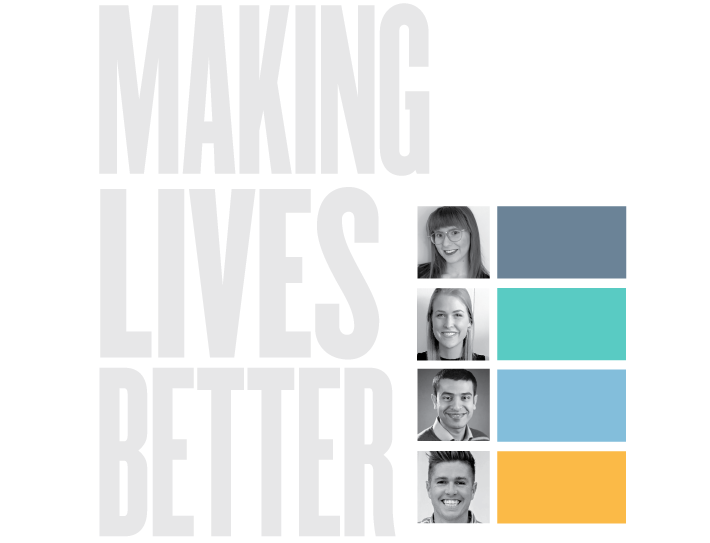HHS students and alumni giving back
For some students and alumni, “Making Lives Better” is more than their college’s motto. It is a way of life.
Story by Maura Oprisko, photos provided
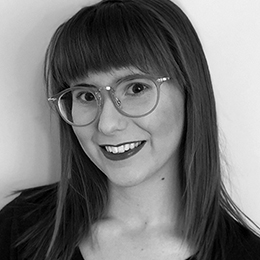
Giving a sense of magic to children in need
It was at Indiana Comic Con that Rosie Mannin (HDFS ’18) met Bonnie King, and a nonprofit was born. They had been performing separately as princesses for children’s events and had some patrons in common. So, the two bonded and, with the help of Mannin’s friend Sam Pendleton, founded Courage and Kindness Co.
Courage and Kindness is the only registered character performance nonprofit in Indiana and particularly serves children in need. The performers appear in character as popular fairy tale princesses at charity events, professional photo shoots and hospital visits.
Beneath the light and playful surface of a princess performance is heavy research and serious work. Mannin engages all her performers in intense training in working with special needs children, carefully scripts and choreographs the events, and includes elaborate costuming because, she says, their target population deserves some magic in their lives.
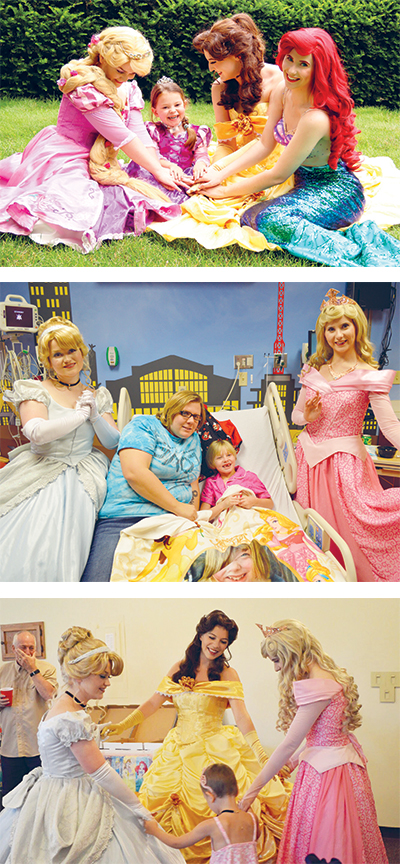
“The populations that we’re serving are focused on children with disabilities and children with high medical needs,” she says. “We want to make sure that everything we’re doing is accommodating to those populations — because we see accommodating as an opportunity to create magic, not as a burden or something to overcome.”
Mannin, who earned her bachelor’s degree in human services, sees Purdue as the place where her interests took shape.
In particular, she talks about the Biobehavioral Development Laboratory run by Kristine Marceau, an assistant professor of human development and family studies. Mannin laughs when she says that the thing that she learned the most from Marceau’s support had nothing to do with the lab. At one point, Mannin was a full-time student, working 10 hours a week in the lab, as well as juggling two part-time jobs, and trying to expand the nonprofit.
“It was a lot going on, and definitely knowing that she was there to act as a resource — that was amazing,” she says. “It stopped me from burning out.”
And it’s paid off. Mannin finds joy in helping to alleviate the stress and pain involved in the lives of the children she serves.
“These kids — especially the ones we visit in the hospital, are oftentimes in very hard circumstances,” she says. “I think my favorite part is knowing that I have improved their emotional well-being, even just a little bit.”
More information about Courage and Kindness Co. is available at courageandkindnessco.org.
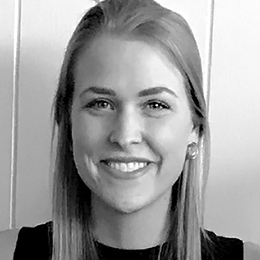
Giving the gift of communication
Molly Mochel was always interested in health care, but it was on a whim that she enrolled in Purdue’s speech, language, and hearing sciences program as an undergraduate student. What she ended up with was a community of supportive faculty, the presidency of the Purdue chapter of the Student Academy of Audiology and her dream career path.
“Our supervising audiologists here set really great examples of the kind of audiologist I want to be,” says Mochel, who is now a second-year graduate student in SLHS. “They take as much time as they need to counsel their patients to fully understand how to work their hearing aids. They do everything they can to help their patients.”
Most insurance carriers do not cover hearing assistance, says Melissa Newell, faculty advisor for Purdue SAA, so pediatric patients often turn to the Hearing Aid Assistance Program of Indiana (HAAPI). HAAPI is a fund that renews each July, but when the funds ran out in February, SAA decided they needed to do something.
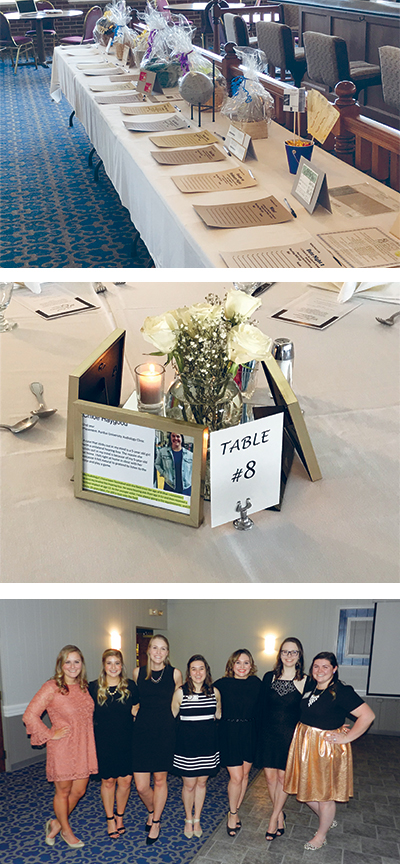
So they created a gift fund to help clinic patients pay for hearing aids and accessories, and started an annual fundraising dinner to fill it. Mochel helped organize last year’s first dinner, which raised around $10,000 for its pediatric patients.
“Because of the gift fund, we were able to order the aids for the patient without making them wait until July to begin the process for funding, which can take several months,” she says.
Now, as president of SAA, Mochel and her fellow executive members organized the Second Annual Gift of Communication Benefit Dinner and expanded their target population to include adults as well (since adults have very few resources in comparison). This year’s dinner raised just over $5,000.
Mochel sees her work as the right thing to do.
“I’ve got a big family and, growing up, I was always taught if you have the skills and abilities to help someone, then you should,” she says. “Seeing a patient who gets appropriately fitted hearing aids after years of difficulty communicating, and seeing their eyes light up when they can understand what their wife or their grandkid is saying, just seeing that excitement and joy — that’s a big deal for me.”
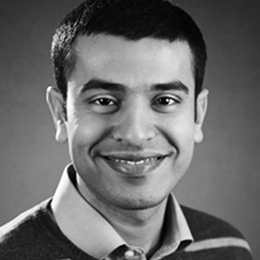
Giving the world a vision, an eye at a time
Dr. Akshay Thomas (HSCI ’08) wouldn’t call himself a humanitarian, but his work speaks for itself. During his residency at Oregon Health and Science University, he spent Saturdays in the Casey Eye Mobile Outreach Van, which routinely saw 50 patients a day in underserved communities. He also visited the Marshall Islands, performing surgeries and screenings for patients without access to eye care and, as he finishes up his retina surgery fellowship, he continues to work with them remotely. The country, with more than 1,000 islands and 50,000 people, is between Hawaii and Australia.
His childhood in India fuels his drive to give back. He lived there from the ages of 7 to 19, and says that not being sheltered from inequities in access to education, nutrition and health care directed his future path.
“For those of us who were fortunate to have a good education, there certainly was a sense of wanting to pay it forward,” he says.
And when Thomas arrived, Purdue was ready to hand him the tools to do so.
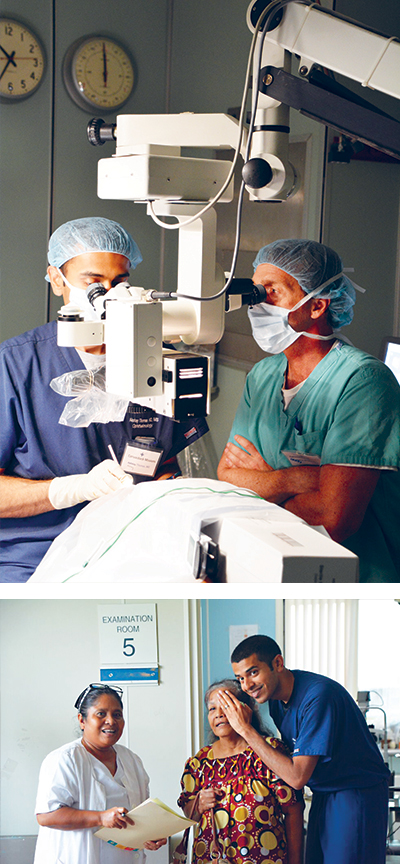
“I remember one of the first emails I got was a callout for a volunteer organization called Students Helping Others Through Service (SHOTS),” says Thomas, who immediately became involved with the organization and later, the Timmy Foundation. “It was my first real exposure to being able to help the underserved both locally and internationally. I quickly realized the tremendous gratification that came from such efforts and realized that it was something I wanted to continue long term.”
But he insists his efforts aren’t completely selfless, and that he is abundantly rewarded.
“When you go to a place like the Marshall Islands, you encounter patients who may have been living in blindness for several years, and we have the ability to restore vision with a 15- or 20-minute surgery. I have to say taking that patch off and watching the expression of someone seeing their child’s face for the first time in years — there’s something very special about that,” he says.
“I think medical outreach is really the closest thing we have to true medicine. It’s just you and your patient, and you’re able to take care of them, and all they have to give you is their thanks. And that’s all you need.”
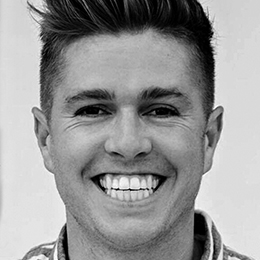
Giving sexual abuse and assault survivors a voice
As a survivor of sexual abuse as a child, Matt Pipkin (CSR ’07) reached a low point when he struggled to see his own worth and went to a counselor for help.
He says it changed his life.
“The bottom line is that every person possesses immense value innately,” he says. “And nothing and no one — including sexual abuse and assault — can ever take away from that. I wake up every morning with the mission to share this truth with people.”
In 2012, Pipkin founded Speak Your Silence, a nonprofit organization dedicated to preventing sexual abuse and assault, helping survivors find their voice and connecting survivors with counselors in their local areas.
Because shame is a major part of the experience of a sexual abuse or assault survivor, taking the step to get counseling is an important hurdle to clear. Currently, he says, people in 28 states have access to counseling through Speak Your Silence.

Its mission of helping survivors find their voices led to its symbol — a simple orange zigzag stitch representative of voice frequencies.
“At the end of the day, when we receive messages from people saying that their life’s been changed because of our work, or they didn’t commit suicide because they found us, that’s the most rewarding part for me,” he says. “Some even have the zigzag tattooed as a daily reminder.”
And that’s just the sort of camaraderie he wants in his nonprofit.
Pipkin had searched for comparable nonprofits but found the organizations’ websites to be depressing.
“They do important work, of course, but their websites just left me feeling kind of bummed out,” he says. “I wanted to turn my story into something hopeful.”
The Speak Your Silence website is fresh and brightly colored, there’s space to post one’s story anonymously and the organization plans to transform an old VW bus into a roving pop-up shop.
Sexual abuse and assault is a dark space, and it was important to Pipkin that his organization be warm, hopeful and somewhat lighthearted so that people feel safe enough to find their voice, he says.
“It’s a cause that people don’t really want to go near,” he says. “And that’s exactly why I started the organization.”
More information about Speak Your Silence is available at speakyoursilence.org.
More Life 360 Stories
Alumni
- Dean’s Message
- 2012-19 Campaign Initiatives
- HHS alumni score for professional sports teams
- HHS students and alumni giving back
- Who's Your Favorite Teacher?
- HHS celebrates Giant Leaps during Purdue's sesquicentennial
Faculty
- Dean’s Message
- Culinary experience transcends reality
- Our Teaching Best
- HHS Award-Winning Teachers
- Sustaining the simple joys of life
- Nursing project tackles overmedication at Indiana nursing homes
- Who's Your Favorite Teacher?
- Inaugural dean steps down, feeling pride in HHS’ strength, confidence in its future
- HHS celebrates Giant Leaps during Purdue's sesquicentennial
Milestones
- News
- 2012-19 Campaign Initiatives
- Inaugural dean steps down, feeling pride in HHS’ strength, confidence in its future
Students
- Culinary experience transcends reality
- International Success Stories
- HHS students and alumni giving back
- Who's Your Favorite Teacher?
- HHS celebrates Giant Leaps during Purdue's sesquicentennial

